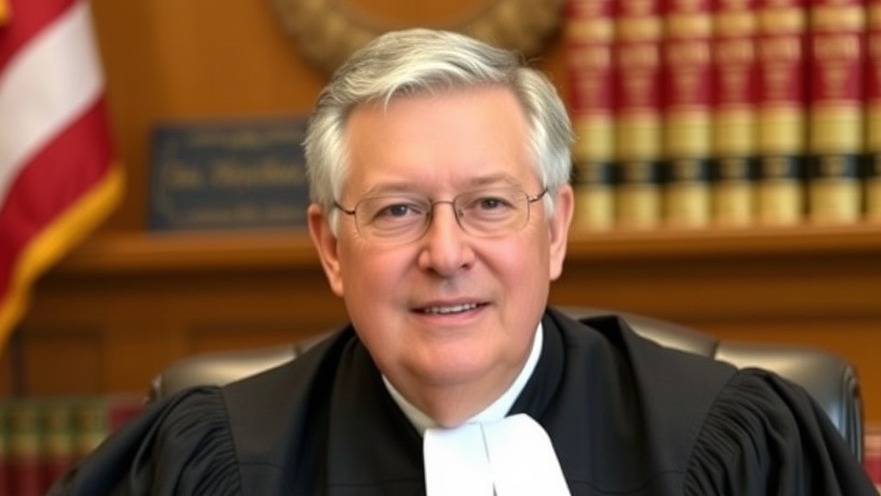
The Implications of an El Paso Judge’s Ruling on Trump's Immigration Strategies
In a groundbreaking decision, an El Paso federal judge has declared President Donald Trump's application of the Enemy Aliens Act to alleged gang members unlawful. The ruling centers around Trump's March executive order which leveraged this antiquated law to facilitate the expedited removal of Venezuelan gang members, particularly those affiliated with the Tren de Aragua gang. As Senior Judge David Briones explained in his detailed 56-page ruling, the invocation of the 18th-century law does not meet the constitutional standards or legal definitions necessary to justify such actions.
Briones' ruling emphasizes that a government’s interest in border security and combating organized crime must be executed through laws that have been legislated by Congress, and not through unilateral executive actions that distort the intentions of the Alien Enemies Act (AEA). He pointed out that mass migration or criminal activities do not align with the legal boundaries set by the AEA.
Understanding the Historical Context of the Alien Enemies Act
Enacted in 1798, the Alien Enemies Act has remained largely dormant for centuries and is reflective of an era characterized by paranoia over foreign influence and invasion. It allows for the apprehension and deportation of enemy aliens during times of war. Judge Briones articulates that a proper military invasion requires actual forces aiming to gain control over U.S. territory, something that alleged organized crime activity simply does not constitute.
Public Reaction and Broader Implications
The ruling has sparked a significant response from immigrant rights activists and legal experts alike, who view it as a pivotal win against perceived overreach in immigration policy. Cases like that of the Venezuelan woman, identified only as M.A.P.S., underscore the potential consequences of misapplication of such laws. Arrested and facing deportation based on mere tattoos, she exemplifies how government overreach can disproportionately affect innocent individuals.
The Future of Immigration Policy and Enforcement
Briones’ decision may set a discouraging precedent for federal authority in immigration policies moving forward. As courts increasingly scrutinize executive actions surrounding immigration enforcement, it will be vital for legislators to respond with clear and just laws that protect vulnerable populations while addressing legitimate security concerns. The idea of addressing immigration through comprehensive reform rather than aggressive enforcement could gain traction as more rulings challenge current policies.
Why This Ruling Matters to Texans
For residents of Texas, the implications of this ruling are particularly significant. It highlights ongoing tensions between state interests, federal authority, and the rights of immigrants, drawing attention to larger issues of border security and community safety. Cities like El Paso and Austin, with large immigrant populations, must navigate the complexities of national policies that can affect their communities at the local level.
Counterarguments Voiced by Immigration Authorities
Despite Briones' ruling, federal immigration authorities continue to maintain that actions against alleged gang members are necessary for public safety. However, this perspective raises questions about due process and the use of outdated laws. With increasing legal challenges, authorities might need to reevaluate their strategies in combating crime without infringing on civil liberties.
As this legal battle unfolds, it not only reaffirms the importance of judicial checks on executive power but also illustrates the core debate over how best to balance national security with the foundation of rights that uphold the principles of justice in America.
 Add Element
Add Element  Add Row
Add Row 



Write A Comment